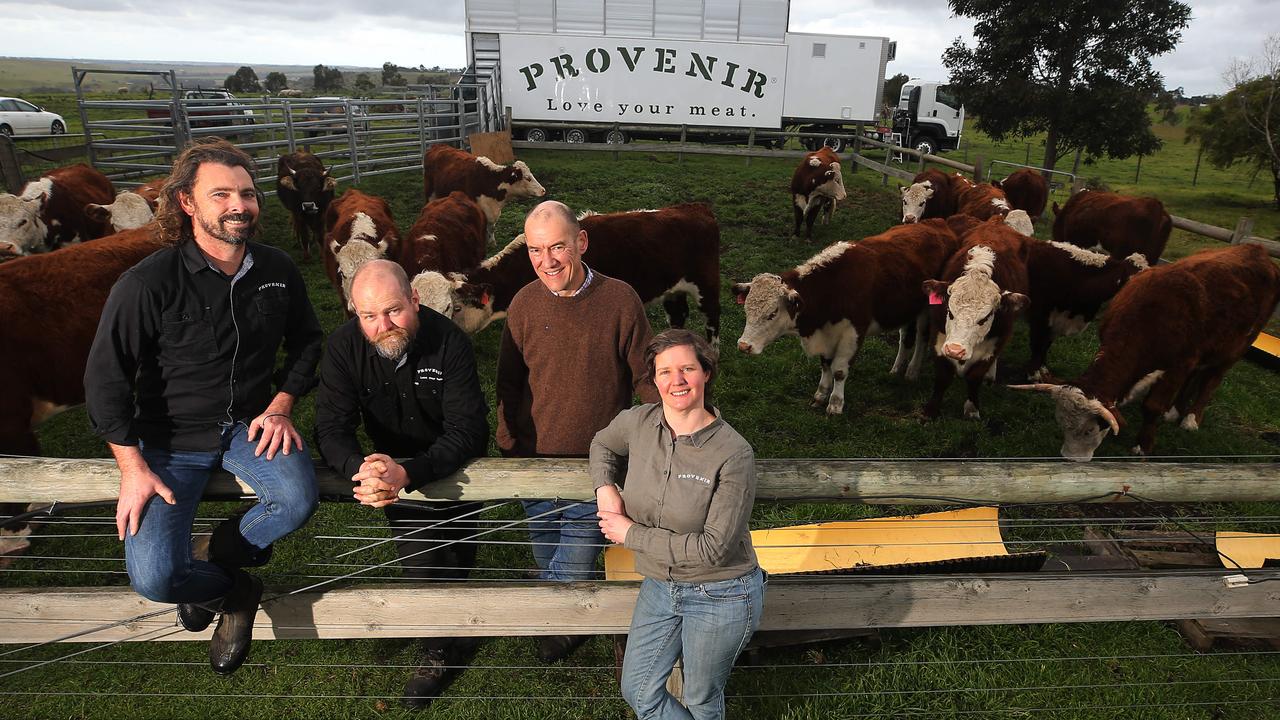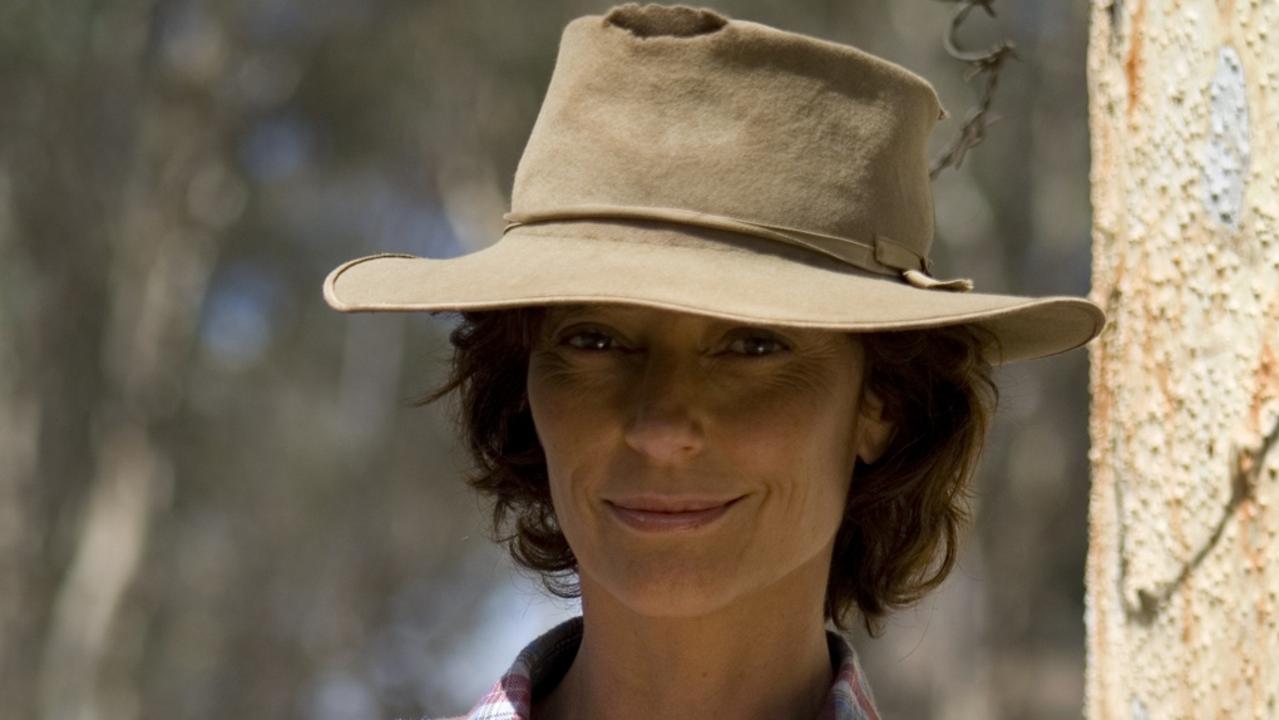Yapunyah Meadow Grazed Chickens: Mandy and Ian McClaren master pastured poultry
Starting with a small flock of 100 meat chickens, this Graytown business has grown dramatically into a profitable poultry operation that also focuses on the health of their land.
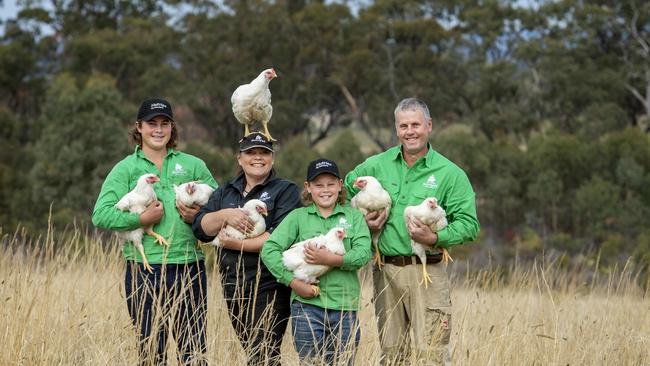
“Ian’s a real chicken whisperer,” confides Mandy McClaren amid the rolling hills of former goldrush country at Graytown in the Strathbogie Shire.
“I’m getting more attuned to it but he goes into the brooder shed and just reads the sound coming out of them and knows if they are happy or sad.”
The chicken whisperer in question is husband Ian, a lifetime poultry addict who still fondly remembers as a three-year-old regularly sneaking into the backyard chook pen of his parents’ Horsham home to cuddle the egg-laying chooks; and later thumbing pages of The Weekly Times looking for poultry jobs.
Today this chicken whisperer says he and wife Mandy, with sons Darby, 14, and Bryce, 11, are in poultry heaven.
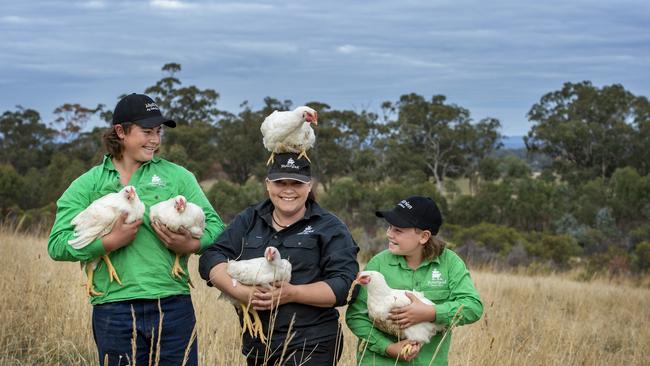
On their 168-hectare central Victorian farm between Heathcote and Nagambie, the couple transforms fledgling chicks into plump, flavoursome chooks for a burgeoning market.
Although their two-person business is small by general standards, their lovingly grown Yapunyah Meadow Grazed Chickens have become sought-after favourites at weekend farmers’ markets, discerning restaurants and with a chain of Melbourne butcher shops.
THE MAYOR AND THE MECHANIC
While Mandy and Ian seem the perfect couple for such a rural business, they are surprisingly different in backgrounds.
In corporate circles Mandy is better known as Amanda McClaren, until late last year mayor for four years of the local shire. The current chair of Hume Regional Development Australia, she is on the committee of the Victorian Farmers’ Markets Association and was previously chief executive of Goulburn Murray Community Leadership.
But around here and to hordes of farmers’ market regulars she is simply Mandy.
With a background as a mechanic and with stints in corporate office furniture sales, and building and renovations, Ian is the perfect hands-on complement.
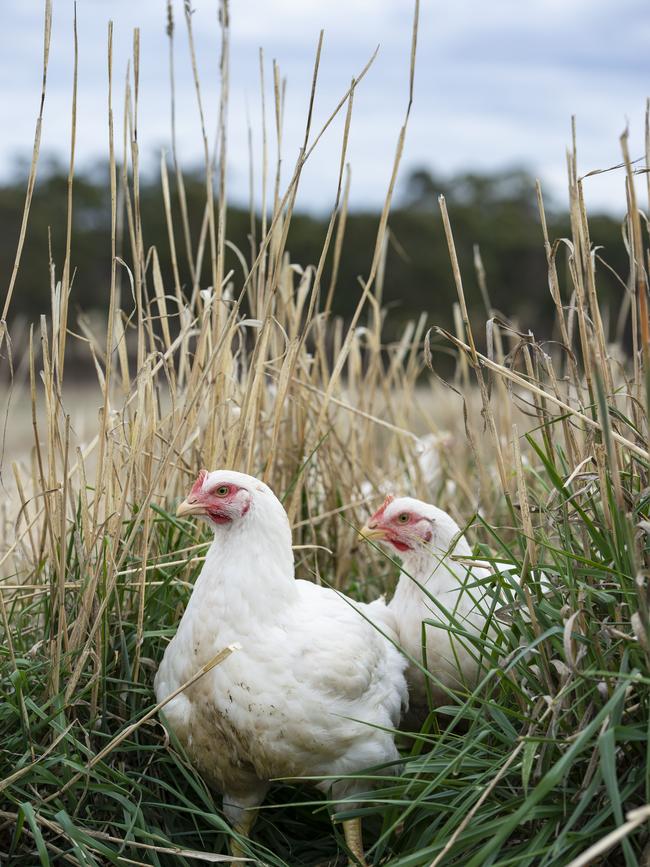
The couple’s rural partnership started on a 10-hectare hobby farm at Cottles Bridge, near St Andrews North where Mandy grew up on a horse and cattle property surrounded by national parkland.
There they dabbled in the theories of American environmentalist and regenerative farmer Joel Salatin before moving to Graytown in 2005, after spotting a small advert in The Weekly Times.
“It was just a little advert that simply said ‘Graytown, 690 acres for sale’, and we had no idea even where Graytown was,” Ian recalls.
Bare, rocky and marginal land with just a house and a shed, it had little going for it, but they saw potential.
Here was their chance to realise a dream, to become regenerative farmers on their own land. They bought two titles amounting to 168 hectares.
Mandy, who studied agricultural science before swapping to applied science specialising in scientific photography, liked the fact it, too, was surrounded by national park.
“It was a clean slate,” she says.
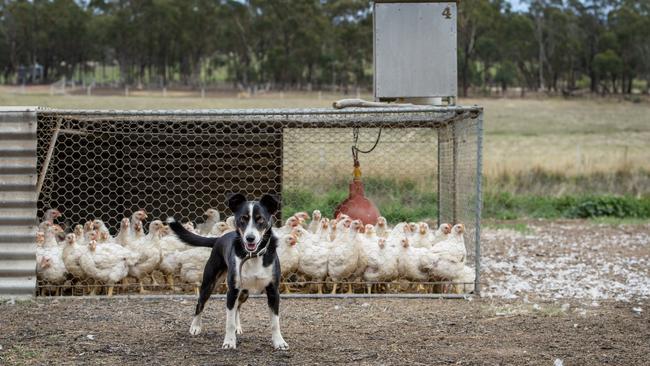

With catchment management authority grants, she and Ian, now with a diploma of agriculture, fenced off more than a kilometre of seasonal creek frontages – and wagon-wheel design watering systems were installed on creek flats for control-grazing cattle.
Yet Ian couldn’t get poultry out of his system.
First they ran a few egg-laying chickens. As they noticed the remarkably improved soil fertility where the chickens grazed, they ran more.
Quickly their future became clear.
In a leap of faith they bought 100 chickens. Even as chicks were arriving, Ian was welding up movable cages for them to go into when ready.
“We just did it, made it happen,” he says. “It was one of those things, if you don’t start doing it then, you don’t do it … and you look like a clown.”
They reasoned at worst they would end up with a freezer full of chickens.
Immediately they sold the first batch at the Daylesford Farmers’ Market. More followed, with a local providore advising on how to present the birds to best effect.
Early on Ian travelled to Queensland to buy a refrigerated Mazda van, previously used to sell seafood.
“Every time I stopped for fuel on the way back people came over with cash wanting to buy seafood,” he recalls, explaining the van’s then orange painted prawn on the side.
PROCESSING AND PRODUCTION
In a typical week, Ian and Mandy load crates of nine-week-old birds on a trailer late on Monday night for Ian’s 4am Tuesday departure to a PrimeSafe accredited processor in Keysborough.
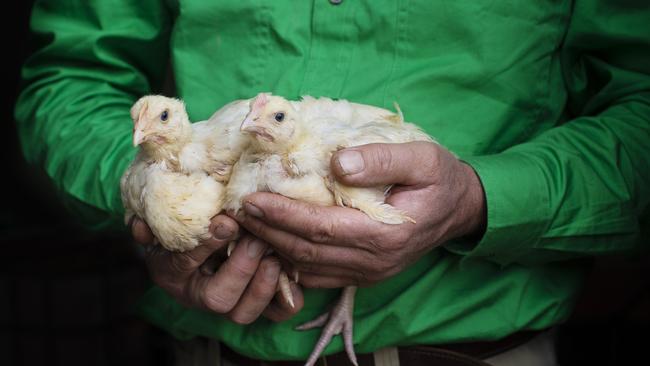
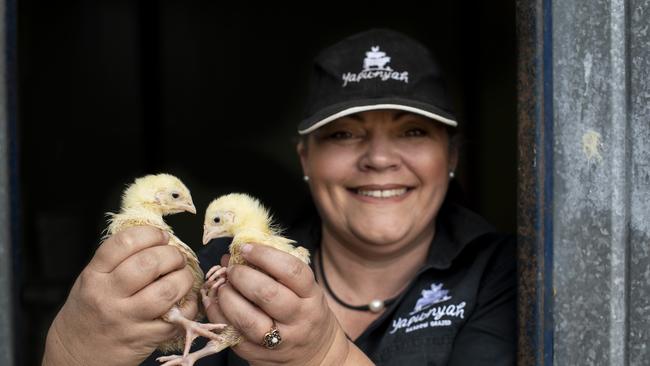
He waits for about four hours before collecting bagged birds in the refrigerated van and returning them for sorting. Some go to a local butcher to be broken down into pieces, while about 70 per cent, including whole and chicken sections, are set aside for farmers’ markets. Butchers and a few restaurants take 30 per cent.
Most whole birds, a variety commonly called Ross, average 2-2.5kg.
For the first eight years, they produced only whole birds but have boosted trade by having them broken down and Cryovaced by Taurus Fine Meats & Smokehouse.
New chick shipments arrive fortnightly in batches of about 250 from a Queensland hatchery and are placed in a brooder shed, in brood boxes Ian has ingeniously made from recycled IBC plastic barrels.
Here a wood heater also made by Ian, along with overhead lights, keep chicks cosy.
Once in feather, after about two weeks, they are transferred to the movable paddock cages.
Cages include three-quarter roof coverage so birds are protected from the elements while receiving plentiful fresh air and sun.
They are regularly moved through the pasture to new ground via trolleys.
Despite falcons and eagles often circling above, sometimes even sitting atop cages, these meat birds are remarkably placid.
In nine weeks they grow from 50 grams to nearly three kilograms.
On average the McClarens output 90-100 nine-week-old birds a week.
New orders are stopped between November and the end of January, when temperatures can soar.
“It’s just too uncomfortable in the paddocks for the birds,” Mandy says, “so we’d rather do that and have them unstressed than having to keep them cool.”
In 12 years the cages have never gone over the same piece of ground twice.
“I have been over 15 acres (six hectares) and only have 400 to go,” Ian boasts. “There was no grass when we came here but every day it just gets better and better – and it stays improved for at least 10 years.”
Apart from what they forage, including grass, bugs and small pieces of ironstone that Ian says they keep in their crops to help grind up their feed, the chickens are fed a custom grain blend, the McClaren mix, from Reid Stockfeed mill at nearby Colbinabbin.
Based on a Joel Salatin recipe and formulated by an animal nutritionist, it comprises mainly wheat and pea along with other nutritional ingredients.
QUALITY MEAT AT MARKETS
At farmers’ markets, whole birds can fetch up to $29 each. Pieces are priced per kilogram, with breast fillets $25.90, Marylands $22.90, wings $15.90, frames $6.90 and necks $9.90.
Mandy admits whole bird prices might seem expensive compared to supermarket chickens but contends quality and taste set theirs apart. Each, she says, can supply several family meals.
“People come back and say, ‘I got three family meals from a bird, and at one point we almost had a competition where someone else said ‘I got five family meals from my bird’.”
VALUE-ADDED PRODUCTS
About to formulate a new 10-year plan, Ian and Mandy must decide whether they work on with just the two of them or employ others.
Plus, they are considering processing chickens either on farm to reduce handling and travel, or setting up a small processing plant in an industrial estate.
Next year son Bryce is hoping to join his brother, Darby, as a boarder at Yanco Agricultural High School in NSW and, despite their help around the property, their parents anticipate some extra free time in their busy lives. Mandy suggests value-added products such as terrines, pates and smoked chicken could be on the agenda.
“Now that I am no longer mayor I have more time to focus on the business,” she says.
FARM FILE: YAPUNYAH MEADOW GRAZED CHICKENS
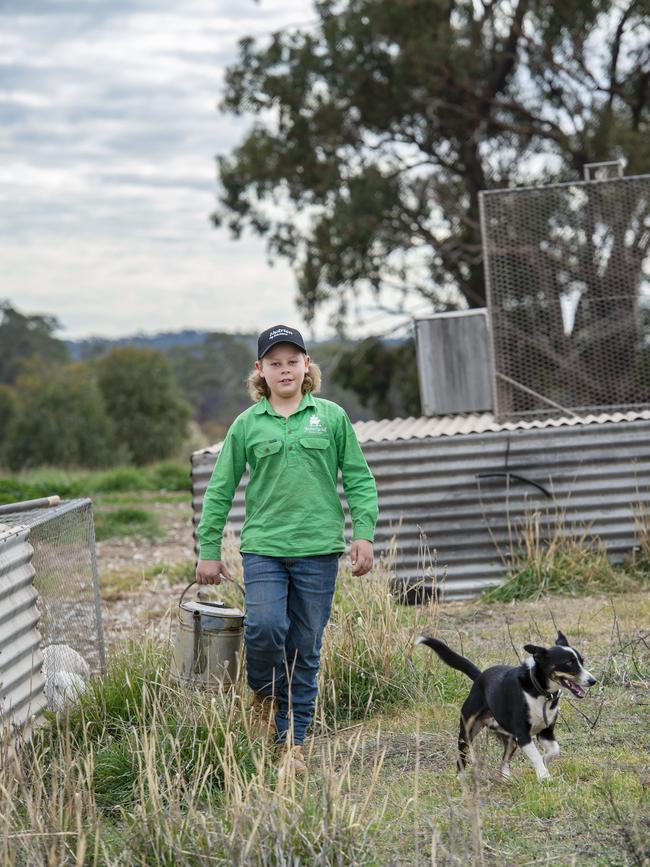
Ian and Mandy McClaren raise meat chickens on 168 hectares at Graytown, with birds housed in movable hutches so they can graze pasture. The family sells their chickens at farmers’ markets and to butchers.
Where: Graytown, central Victoria
More info: facebook.com/yapunyahfarm
FARMERS’ MARKET MANIA
While the McClarens feared the pandemic would bring plummeting sales, the exact opposite happened.
“It changed the markets, but in a good way,” says Mandy, recalling a visit to the Coburg farmers’ market early during restrictions. “Within half an hour we sold out of all our whole birds. Ian just looked up and said, ‘what has just happened to us?’. By 10am we had sold everything. We just got smashed, and we had taken more product than we normally would. And we kept doing that, and each market kept taking more and more.”
While this unprecedented and hugely unexpected consumer interest in locally produced food was widespread during lockdowns, the heat seems to have come off sales.
That’s the take of Victorian Farmers’ Market Association president Chris Hain.
The key word now, he says, is “inconsistent”.
While still trying to get a handle on current trends, he notes inconsistency in the flow of foot traffic into markets.
“It’s probably back somewhere close to where we were in 2019, and I think some producers have had to recalibrate their expectations from the good times during COVID.”
The exceptions, he says, are beef, pork, egg and bread producers, along with chicken suppliers such as Ian and Mandy, who are still doing well.
Likewise, releases of new season produce such as strawberries, olives, walnuts and particularly Pink Lady apples are still “causing customers to climb over themselves to get to the top of the queue”. Yet elsewhere, particularly among vegetable producers, sales are patchy.
He puts this uncertainty down to Jobseeker and JobKeeper dropping off and the fact people are again seeking to travel and to visit restaurants.
“In essence what we are seeing is competition for the household budget, and that competition is being spread pretty broadly.
“If there’s a message or a call-out to the public, it’s if you have forgotten about how important it is to support the farmers’ market system, this is a good time to remember and get out no matter the weather.
“The core of producers need our support year-round.”
MORE
VICTORIAN FARMERS’ MARKETS CONFIDENT DESPITE LATEST SETBACK

